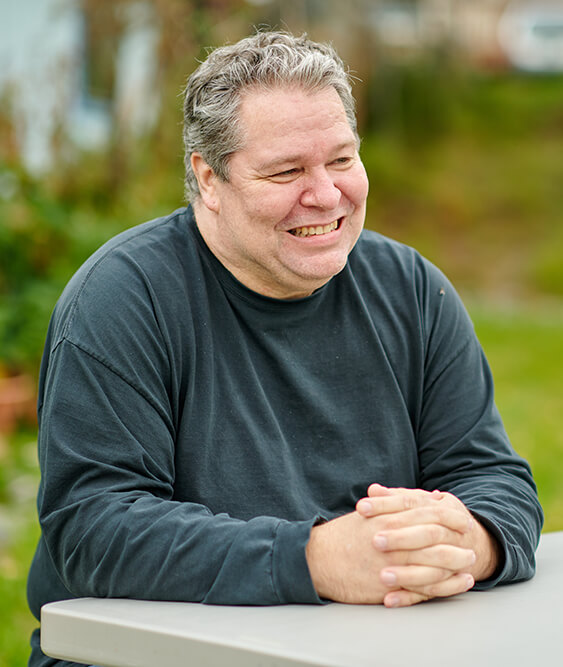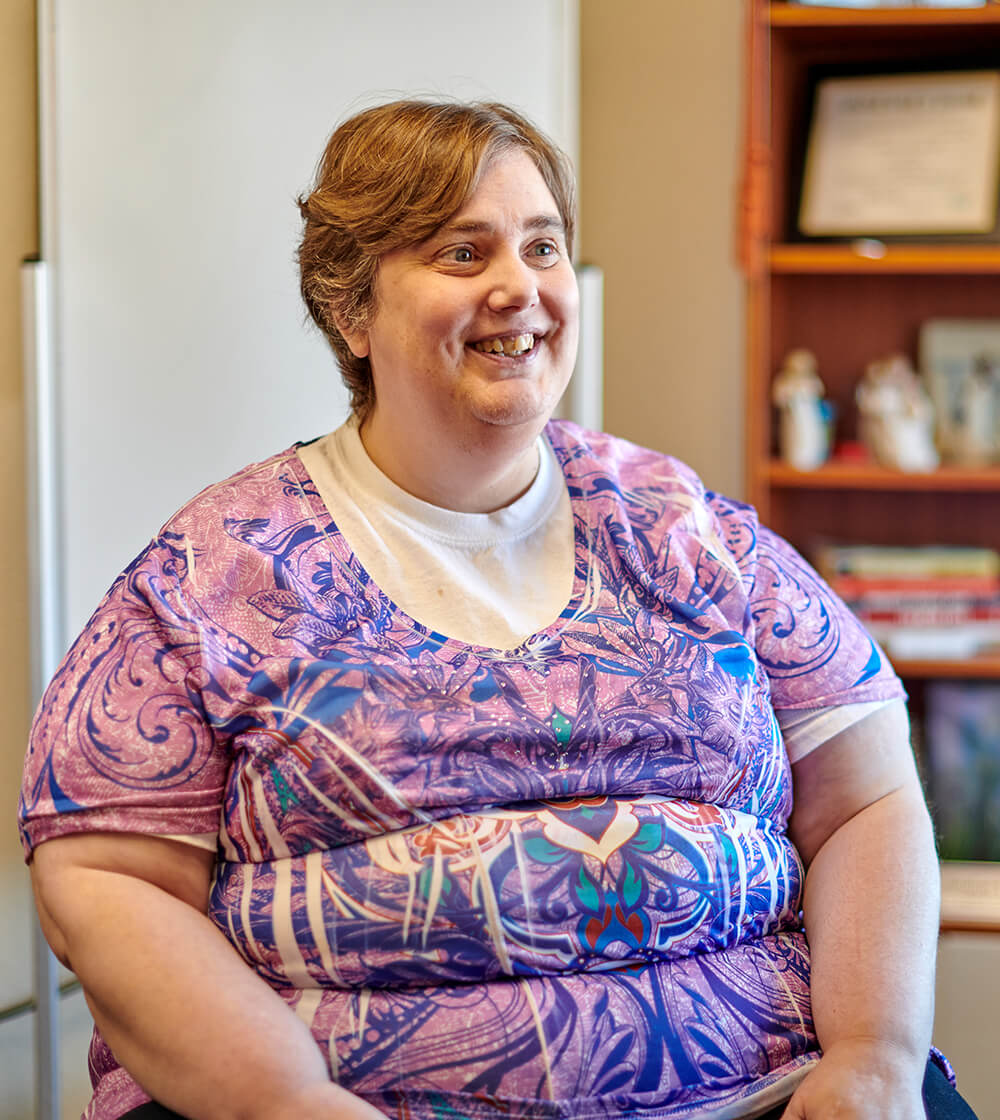Beneficiary Stories
Bobby
Bobby is an active member of his community, serving on boards and councils that are leaders in the training, advisory, and advocacy space for beneficiaries who experience addiction, as well as who are coming out of incarceration. As a dedicated champion for criminal justice reentrants, part of what makes Bobby such a powerful ally and advocate is his own experience as a reentrant and someone in recovery from addiction. “In the beginning of my recovery I was trying to beat the odds, but today I’m working with others to change the odds.”
Empowered by his lived experience, Bobby is now an addiction counselor with Fairbanks Native Association and serves on the Fairbanks Reentry Coalition, Fairbanks Diversity Council, and Peer Support Advisory Board, all of which enable him to support his community and mentor people going through the same challenges he once faced. He is also a member of the Alaska Mental Health Board and regularly volunteers with local nonprofits that support those experiencing homeless, mental illness, and addiction. “The things that I’m doing today makes it worth it.”
Kristin
Kristin’s successful journey to recovery from addiction has taken her through both highs and lows. After starting to use substances at 14 years old, Kristin’s use progressed and intensified until she was 35, and found herself in an abusive relationship. “In my teen years, it was a freedom from all of the stress of life of that time. I didn't consider it too serious until my dad got sick and I started medicating with some of his prescription painkillers and then that took hold pretty hard.”
Today, Kristin is a mentor to other individuals who struggle with addiction and a small business owner. Through her businesses, Seward Space Savers and Gypsea Treasure Trunk, she is able to provide employment to community members who are where she once was: struggling to get back on their feet in recovery. “I am now able to employ other people in the recovery house that need an opportunity. Something that was humanizing, you know, because addiction doesn't discriminate.”

Originally from the East Coast and now living on the Kenai Peninsula, Bob really began to notice that he might be different from his peers in college. “I used to wonder sometimes, how do people manage to get these great grades? Pretty much every semester I'd have about two weeks where I really couldn't leave my room.”
Suffering from depression from the time he was 12 years old, Bob shared that it took years to get a diagnosis, and even then, life continued to be a rollercoaster. “I guess it was good at first to feel like I was getting some sort of a handle on what was going on. But over that first three years of treatment, I got drastically worse, like much, much worse.”
For Bob, his journey with mental health has evolved as he has worked hard to find a balance with his bipolar disorder. He explained what it’s like to live with mental illness, describing it as “seeing life from a whole bunch of different energy states,” creating a ripple effect in his life and impacting his relationships with his family and his ability to find secure employment.
Connecting with a local Trust grantee organization in Homer, Bob found support through their mental health services and, as he improved, he was able to explore employment supports. Bob is now working to become a peer support specialist, which assists other Trust beneficiaries who may be struggling with similar mental health experiences. Now focused on helping others as a part of his journey, Bob shared this reminder with us: “Your mental health problem, your addiction problem, it’s not something you're choosing. It's something happening to you. And that stigma and the way people look at you, that's another thing that's happening to you. It's not your fault.”

An outgoing person who loves nature and doing outdoor activities, Charlotte moved from Ketchikan and now lives in Seward. When Charlotte’s son was just a year old, she realized she might be struggling with mental health issues when she started hearing voices. Seeking help, Charlotte was diagnosed with schizophrenia. “It was scary. I thought I wouldn’t be able to take care of my son. I thought that I wouldn't be able to do the things that normal people need to do.”
Luckily, Charlotte was connected with SeaView Community Services, a Trust partner that offers mental and behavioral health services and supports in Seward. Through SeaView, Charlotte was encouraged to work on small, everyday tasks that supported not only her well-being but her son’s growth as well. She was able to find parenting support that helped keep her son in her home and got engaged with activities that got her out of the house and interacting in her community. “I was able to maintain healthy living, a healthy life, and raise my baby as well.” She not only was able to learn the importance of everyday tasks through her new normal, but also how to navigate a sometimes-scary diagnosis with integral community supports.
Now that her son is grown and off to college, Charlotte is still connected with her local service providers who made such an impact on her and her son’s life. “I've been with this program so long, me and my son, we say y'all are our family. We have a SeaView family.”

Born in Seattle and growing up in Nikiski, Michelle lights up when she talks about her cats and Frontier Community Services. Involved with Frontier since she was 18 years old, Michelle can rattle off a myriad of services, from case management to direct services providers to mental health supports, that her fellow beneficiaries can benefit from. She’s like an advocate, welcome wagon, and one of the longest-served beneficiaries at Frontier. “It’s like one big team,” Michelle said about the Trust-funded organization.
Experiencing intellectual and developmental disabilities, Michelle shared about the stigma that has impacted her, most frequently through the way other people treat her. “People treat people who have disabilities like children. We’re not children. We’re adults. “
Through Frontier, Michelle has become more independent and has been able to live a life that makes her happy. When asked about what she might want people to know about her, she beamed, “That I have changed a lot because of the services that I get now. They treat me like an adult, and I feel like I act like an adult.”

